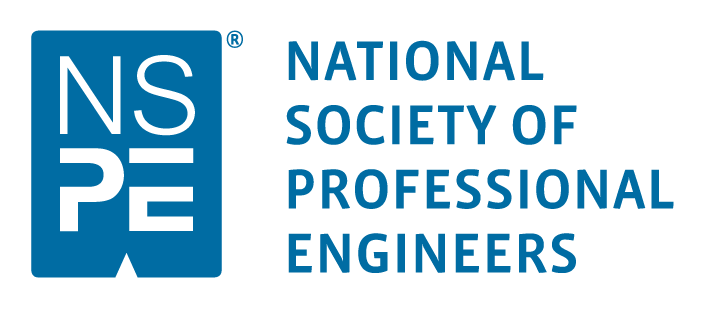A Building Inspection Engineer is no Run-of-the-Mill Engineer
When purchasing a property, the buyer should hire a professional that will evaluate the building and create a report about its current condition. Depending on the type of property and their needs, prospective buyers can either hire a home inspector or a building inspection engineer.
As their title implies, home inspectors are ones that are usually employed to describe the current condition of a residential property. They are generalists that are trained to recognize potential problems in different home systems and their major components.
Building inspection engineers, on the other hand, are specialists that are usually employed by residential, commercial, institutional, and manufacturing property owners to assess and evaluate the current condition of the property using different engineering systems, structural analysis, and design tools.
According to Building Inspection Engineers Certification Institute (BIECI), building inspection engineering is a 50-year-old specialty within the engineering industry, so it’s relatively new compared to other engineering specialties. However, recent developments in this field have proven significant enough to make it one of the most important roles in today’s construction industry.
In this blog post, we will discuss the different factors that set building inspection engineers apart from home inspectors and other engineering professionals.
Education
Professional building inspection engineers in the U.S. are required to have at least a bachelor’s degree in engineering from an Accreditation Board for Engineering and Technology (ABET) accredited college or university.
This is in contrast to the home inspection license requirements in New Jersey, wherein applicants are only required to complete a 180-hour course of study and field-based inspections to achieve the status of becoming a licensed home inspector.
Licensing
Before aspiring building inspection engineers can be fully certified, they must first obtain a Professional Engineer (P.E.) or a Registered Architect (R.A.) license from their respective state licensing board.
In most states, including New Jersey, obtaining a P.E. or R.A. license requires a minimum of a 4-year bachelor’s degree, five or more years’ engineering work experience after graduation, recommendation letters from industry peers, and extensive continuing education to retain the license.
As a result of these extensive licensing requirements, building inspection engineers have already built a considerable amount of field experience before obtaining their professional certification. Being a licensed P.E. or R.A. also means that building inspection engineers are much more effective than standard home inspectors in evaluating the concerns of the buyer and providing reliable and expert opinion throughout the inspection process.
Professional Certifications
While most engineering specializations can achieve the same P.E. status, it does not mean that one has the same professional certifications as the other. As for the case of building inspection engineers, the National Academy of Building Inspection Engineers (NABIE), in partnership with the BIECI, certifies those who can meet the following criteria:
- P.E.s and R.A.s who have had at least eight (8) years of building inspection engineering experience acceptable to the Board of Governors (BOG). Four of the eight years of experience shall be in responsible charge of work acceptable to the BOG, which must include active participation in inspection, evaluation, deficiency repair design, research related to building condition assessment or inspection, or teaching.
- P.E.s and R.A.s who hold a bachelor’s degree from an accredited college or university with a major in engineering.
- P.E.s and R.A.s who have passed a written examination given by a state board of registration for licensure.
In addition to these requirements, one must also pass a written examination that includes questions on the following topics to become a NABIE-certified building inspection engineer:
- History of building and construction, including historic preservation
- Building materials
- Construction detailing and techniques
- Structural analysis and theory of structures
- Thermal systems
- Surveying engineering
- Timber and wood frame structures
- Steel structures
- Concrete and masonry structures
- Plumbing/waste management
- Life safety
- Building electrical systems
- Integrated building system design
- Geotechnical engineering
- Building mechanical systems (e.g., vertical transportation)
- Site features, including security
- Building codes and standards, including ADA compliance
- Engineering economics (e.g., cost estimation, financial analysis)
- Investigative methods and forensics
- Environmental issues
- Written communication for building inspection engineers
- Standards of practice
- Professional practice/ethics
Receiving this certification makes building inspection engineers stand out for their technical skills, and allows them to prove the competency, experience, and educational preparation they possess to effectively evaluate buildings of all types and complexity.
Selecting the Right Building Inspection Service
Building inspection services in NJ are becoming an essential solution for prospective commercial property owners in the Garden State. But while these services are fundamental in the identification and assessment of property defects, it’s vital that the professional that will be hired can take the property owner or prospective buyer though the smallest details of the inspection process.
This is why it’s important to retain a qualified NJ building inspector that has both the engineering expertise and experience needed to spot any defects that many inspectors would miss entirely.
Throughout New Jersey, commercial building inspections can often fail to meet the high standards set out by governing bodies for engineering and safety. If searching for a commercial building inspector in NJ, it’s best for owners or prospective buyers to hire a licensed building inspection engineer that follows the NABIE Standard of Practice, as they can ensure a detailed inspection process and produce a report that complies with the format and content standards of NABIE. Lockatong engineers perform commercial building inspections, often referred to as Property Condition Assessments (PCA) per the NABIE Standard of Practice and in accordance with ASTM E2018, which is the standard Guide for Property Condition Assessments.
Contact Lockatong Engineering today to learn more about the service offerings of our commercial building engineers in NJ.








